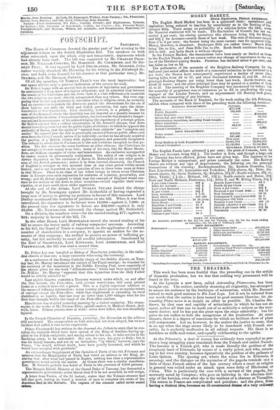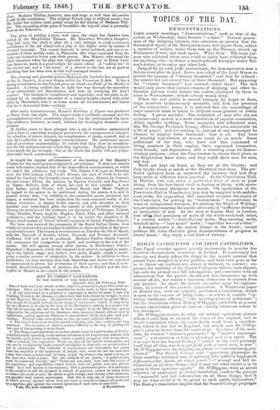At the Princess's, a deal of money has evidently been
expended to pro- duce a long straggling piece translated from the French and called Naiada. The heroine is a French girl, who is made literally the goddess of the imaginary land of Eldorado by means of a crafty priest, and who, return- ing to her own country, becomes figuratively the goddess of the gallants of Louis Quinze. The opening act, where the scene lies in Eldorado, is amusing; and the dialogue on the mysteries of the pagoda reminds one a little of those French satires of the last century where a sneer at religion in general was veiled under an attack upon some deity of Hindostan or China. This is particularly the case with a servant of the pagoda, ha- morously acted by Compton; who goes on believing in the absolute divi- nity of the heroine, even after she is the resident of a chateau at Versailles. The scenes in France are complicated and pointless; and the piece, from baying a distinct idea, becomes an ill-constructed drama of a very ordineoS class. Madame Thillon, however, acts and sings so well that she carries it safe to the conclusion. The original French play is without music; but Ate Leder has written some pretty songs for the display of Madame Thil- tom The mounting of the piece is beautiful—far beyond what is generally done at the Princess's.



























 Previous page
Previous page